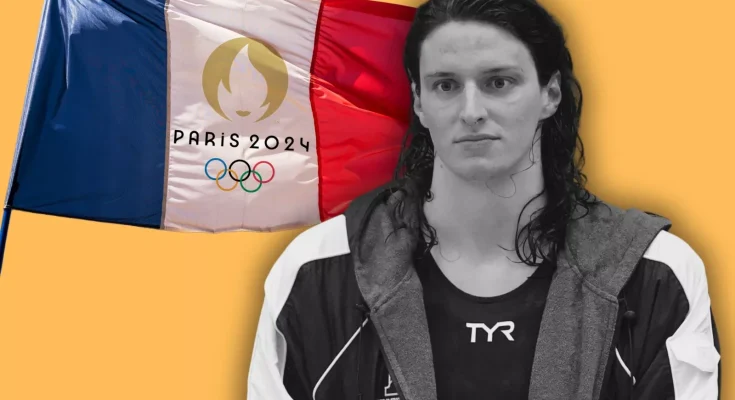Transgender swimmer Lia Thomas has spoken out after losing a legal battle that will essentially see her barred from competing in next month’s Olympics in Paris.
Three judges on the Court of Arbitration for Sport (CAS) on Wednesday dismissed the athlete’s request for arbitration with World Aquatics, the global sport governing body for swimming, over rules it introduced regarding transgender competitors.
World Aquatics voted in June 2022 to prohibit transgender women who had been through male puberty from competing in women’s elite races. The organization introduced an open category in its 50-meter and 100-meter races across all strokes, which would allow for the inclusion of those whose gender identity differs from their birth sex.
Thomas asked CAS to overturn the ruling last year, arguing that the guidelines were discriminatory and unlawful. The rules were put in place after former University of Pennsylvania student Thomas became the first transgender woman to secure a National Collegiate Athletics Association (NCAA) swimming championship victory in 2022.

In its ruling regarding Thomas’ challenge, the Switzerland-based court said: “The panel concludes that she lacks standing to challenge the policy and the operational requirements in the framework of the present proceeding.”
Responding to ruling, Thomas said in a statement provided by her legal team that the upholding of the ban should serve as a “call to action for trans women athletes.”
“The CAS decision is deeply disappointing,” the statement read. “Blanket bans preventing trans women from competing are discriminatory and deprive us of valuable athletic opportunities that are central to our identities. The CAS decision should be seen as a call to action to all trans women athletes to continue to fight for our dignity and human rights.”
Newsweek has contacted representatives of the CAS via email for comment.
Thomas first made national headlines in 2021, after defeating rival college swimmers by large margins. It ignited a debate about whether transgender swimmers, as in Thomas’ case, should be allowed to compete against cisgender rivals of the female gender.
Riley Gaines, a former competitive swimmer for the University of Kentucky, has become a figurehead for the movement to keep those identifying as transgender women out of female sports. She welcomed Wednesday’s ruling as “great news,” adding in a post shared on X, formerly Twitter: “This is a victory for women and girls everywhere.”
Since tying with Thomas in the 2022 200-yard NCAA freestyle, Gaines has campaigned against trans inclusion in women’s categories in sport, arguing those with biologically male bodies have an unfair advantage over biological women. Gaines has also filed a lawsuit against the NCAA for allowing Thomas to compete in the 2022 championships.
While some say that excluding transgender athletes from women’s categories is discriminatory, others argue that such inclusion was itself prejudicial as it meant biological women were less likely to be successful.
Caitlyn Jenner, a 1976 Olympic decathlon gold medalist who transitioned to female in 2015, has been a vocal critic of transgender women in sports. Last year, she launched an initiative called Fairness First. The political action committee that describes itself as “a big tent movement, non-partisan in nature, with the intention of protecting women and girls in sport—especially in light of recent events with radical gender ideology.”
Defending her inclusion in women’s events, Thomas told ESPN in 2022 that “trans women competing in women’s sports does not threaten women’s sports as a whole. Trans women are a very small minority of all athletes.”
Thomas, who began hormone therapy in May 2019 after her sophomore year, said: “The biggest misconception, I think, is the reason I transitioned. People will say, ‘Oh, she just transitioned so she would have an advantage, so she could win.’ I transitioned to be happy, to be true to myself.”
At the time of her interview, Thomas shared plans to focus on public interest law and civil rights while studying at law school.
“Having seen such hateful attacks on trans rights through legislation, fighting for trans rights and trans equality is something that I’ve become much more passionate about and want to pursue,” she said.



